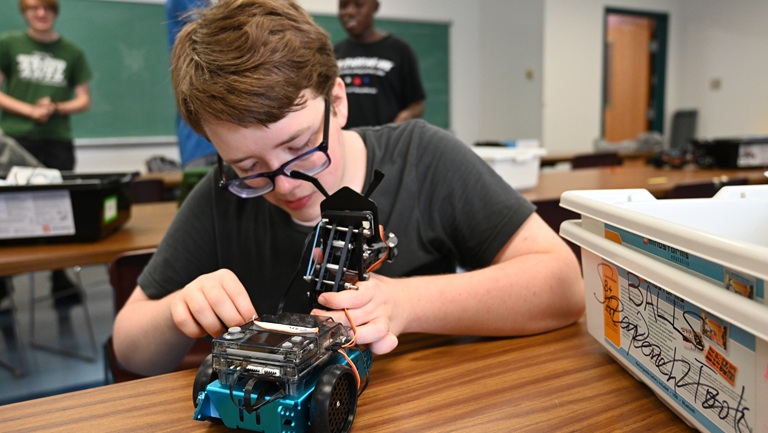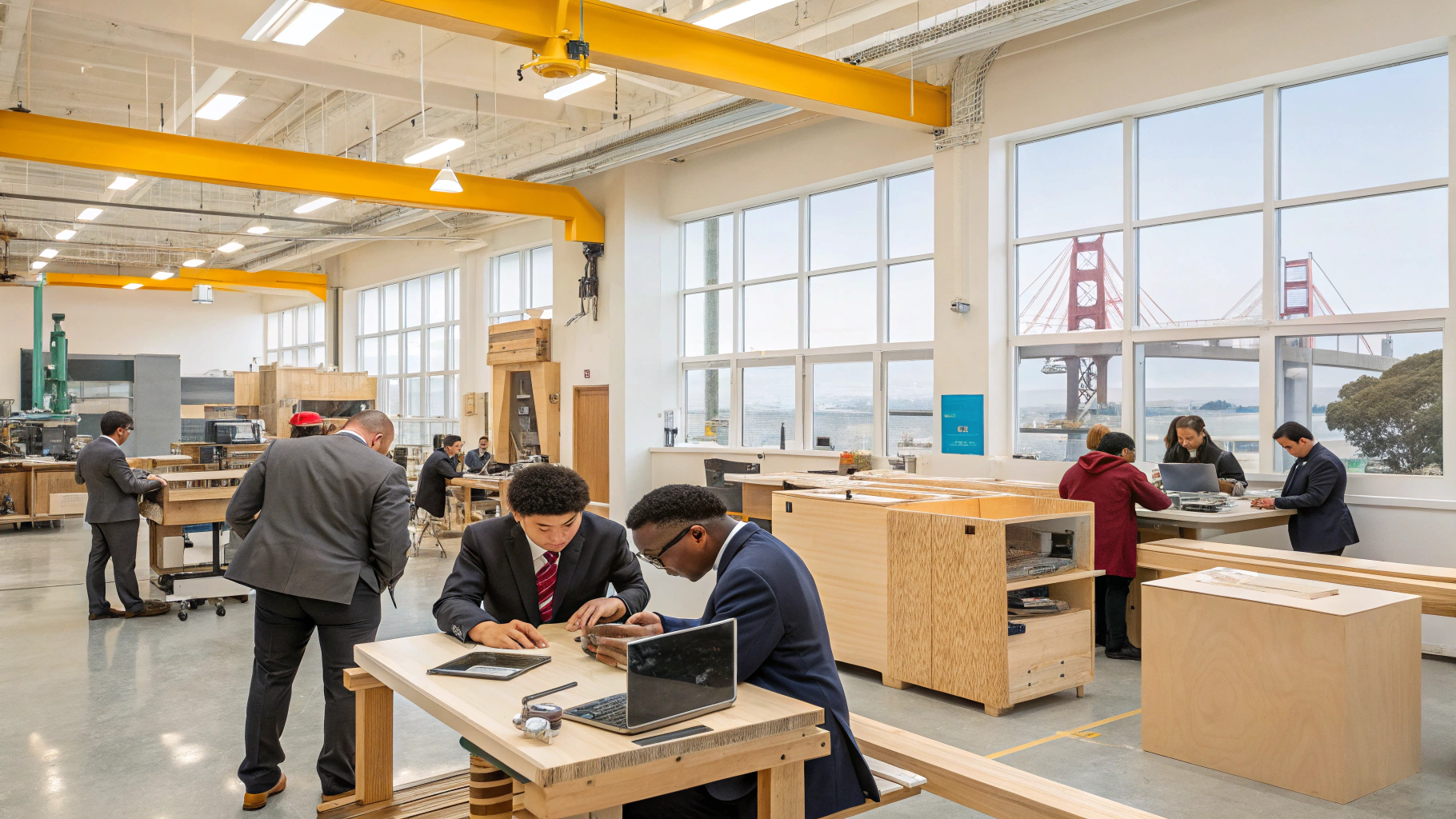Every unfilled skilled trade job costs the U.S. economy nearly $10,000 a year, and we're looking at a shortage of over half a million workers by 2026. For trade school graduates, apprenticeships aren’t just a pathway to employment, they're exactly what struggling industries need. Take Maria, a welding student in Detroit who landed a $77,000/year job at a GM supplier after her mentor secured her a spot in a competitive apprenticeship. Stories like hers reveal how strategic partnerships between schools, employers, and mentors can transform lives while fueling economic growth.
.jpg)
How Government Programs Connect Apprentices with Employers
Structured training systems form the foundation of successful apprenticeships.
Registered Apprenticeship Advantage
Programs certified by the U.S. Department of Labor (DOL) give graduates a decisive edge. Take the Associated Builders and Contractors (ABC), which offers 450+ DOL-registered apprenticeships across trades like electrical work and plumbing 1. These programs blend 2,000 hours of paid on-site training with 144+ classroom hours, ensuring apprentices meet national skill standards.
"Our graduates earn journeyman credentials that employers trust,"
says ABC’s workforce development director.
School-Employer Collaborations
Forward-thinking trade schools like Lake Area Technical Institute achieve near-perfect job placement rates by partnering directly with local businesses. When Diesel Tech students at Universal Technical Institute train on equipment donated by Caterpillar, they’re essentially auditioning for future roles, which is a model that’s helped 99% of graduates secure work within a year 2.

Forging Business Partnerships That Connect Apprentices with Employers
Local employers hold the keys to apprenticeship opportunities, but schools must proactively engage them.
Solving Real Workforce Needs
A Michigan HVAC company recently worked with Grand Rapids Community College to redesign its apprenticeship curriculum.
"We needed technicians who could install heat pumps, not just furnaces,"
explains the owner. The resulting program now supplies 85% of their new hires.

Co-Created Training Models
Trade schools in Tennessee partner with manufacturers to develop hybrid apprenticeships. Apprentices spend mornings learning robotic welding simulations in labs, then afternoons applying those skills on factory floors. Employers fund these programs through tax-credited contributions, creating a sustainable talent pipeline 3.

Mentorship: The Human Connection in Apprenticeships
Good mentors don’t just teach skills, they open doors for apprentices.
From Classroom to Construction Site
When Javier, a first-gen plumbing apprentice in Phoenix, struggled with jobsite communication, his mentor arranged weekly role-playing sessions.
"He taught me how to clarify instructions upfront, which prevented costly errors,"
Javier recalls. Such guidance reduces the 40% industry dropout rate by helping apprentices navigate unwritten workplace rules 4.

Career Advocacy
Experienced mentors often become powerful allies. After Sarah aced her CNC machining apprenticeship at Boeing, her supervisor recommended her for a prestigious aerospace certification program.
"Mentors see potential employers don’t,"
notes a Michigan workforce coordinator 5.

Breaking Barriers to Connect Apprentices with Employers
Systemic challenges require innovative solutions.
Expanding Access
Despite growing demand, apprenticeship slots remain scarce. Louisiana’s recent "all-hands" initiative demonstrates progress, combining union and non-union programs to increase openings by 22% in two years 6.
 Supporting Diverse Talent
Supporting Diverse Talent
Programs like Florida’s EV Technician Initiative partner with historically Black colleges to recruit women and people of color into emerging green trades.
"Diverse apprentices bring fresh perspectives to aging industries,"
argues the program’s director 7.

Policy Changes Strengthening Connections
Recent reforms are reshaping the apprenticeship landscape.
Funding Alignment
The 2025 National Apprenticeship Act directs $380 million to expand programs in infrastructure and renewable energy trades. Schools like Bates Technical College now use these funds to subsidize apprentices’ tools and certifications 8.
Diversity Mandates
California requires state-funded construction projects to have 15% of labor hours performed by apprentices from underrepresented groups. It’s a policy that’s tripled female participation in electrical apprenticeships since 2024 9.
The Road Ahead: Scaling Success
With 1.2 million apprenticeships needed by 2030, stakeholders must act urgently:
- Trade Schools: Embed employer advisory boards in curriculum design
- Employers: Offer "try-before-you-hire" internships to identify top apprentices
- Policymakers: Expand tax incentives for small businesses hosting apprentices
When Maria welds her first aircraft part in that Detroit shop, it's proof that connecting apprentices with the right employers isn’t just about filling jobs, but about giving people real careers. We've got all the tools we need to make this work, we just need to actually use them.
Sources: ABC Workforce Development 1, U.S. Department of Labor 8, Bureau of Labor Statistics 2, Apprenticeship.gov 3.

